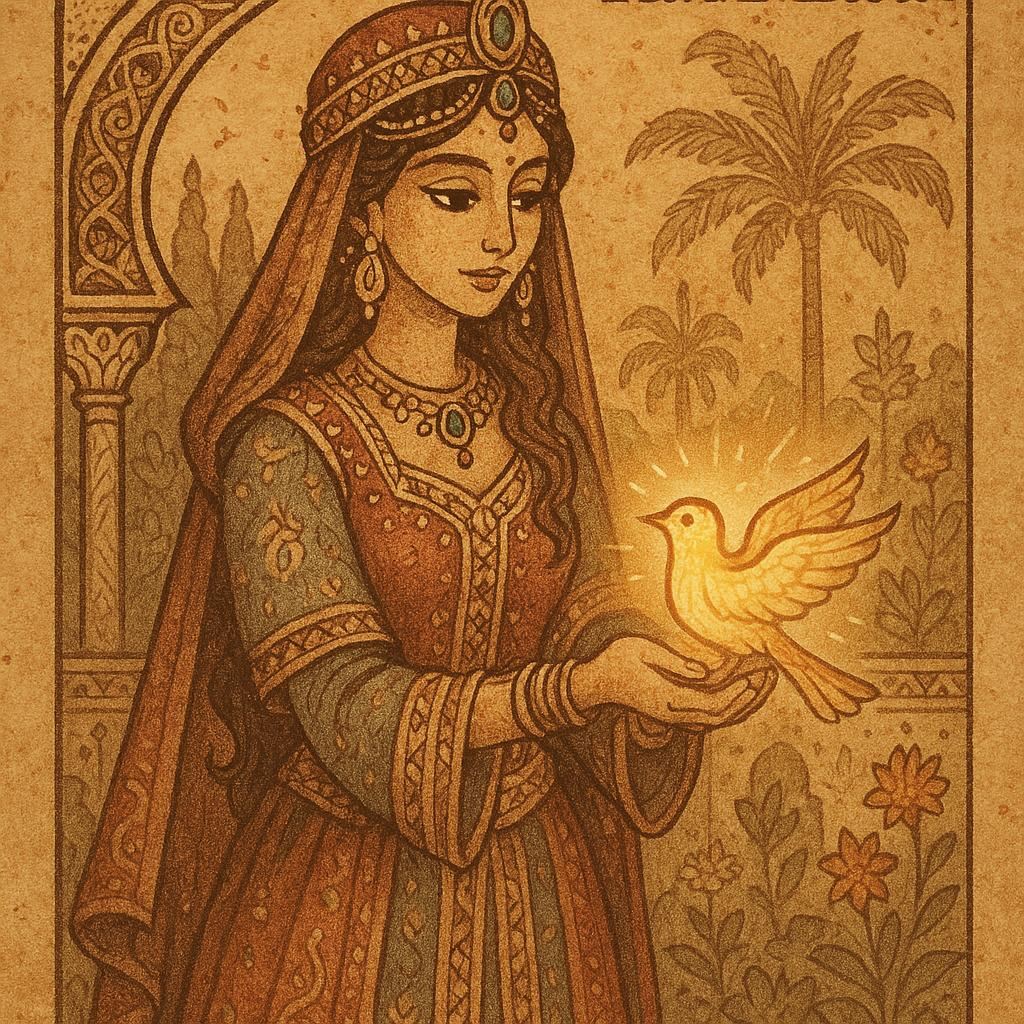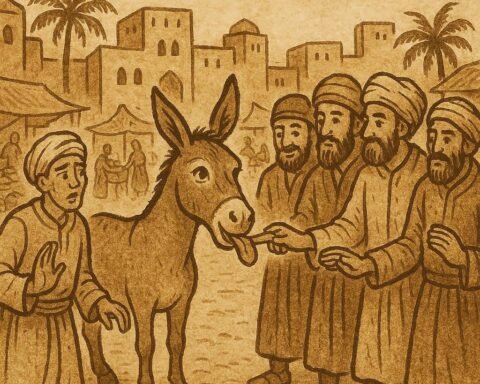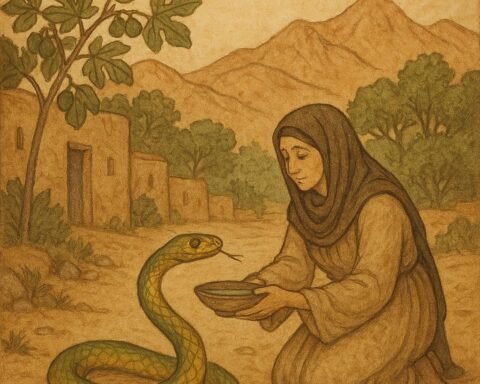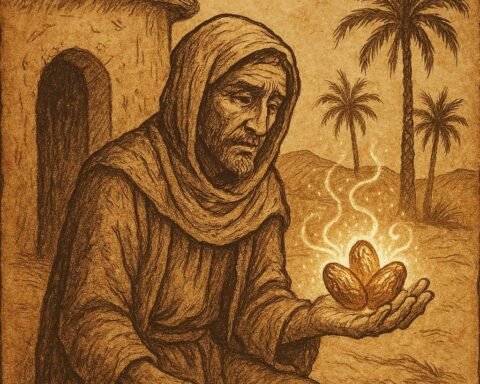Long ago in Morocco, a powerful Sultan ruled over a kingdom filled with riches and splendor. His palace sparkled with marble floors, golden arches, and fountains that danced under the sun. Yet all his wealth could not compare to the treasure of his heart. His only daughter was admired not only for her beauty but also for her sharp mind and curious spirit. She loved wisdom, stories, and the quiet songs of the palace gardens.
One quiet evening, as the Sultan’s daughter wandered through the garden paths, she heard a sound that seemed to float from the heavens. It was a melody unlike any she had ever known, soft and bright like bells in the wind. She followed the song until she reached a fig tree where a bird rested. The bird was unlike any bird she had seen before. Its feathers shimmered with colors that seemed to belong to both dawn and fire. Its eyes glowed with a strange light, and when it sang, the very flowers leaned closer as if to listen.
The princess stood in awe. The bird spoke to her with a gentle voice, saying, “I am no ordinary bird. I was once a young man, but a jealous sorcerer trapped me in this form. Only someone with courage and wit can break the spell.”
READ THIS: The Orphan and the Ghoul
The princess felt both fear and wonder, but her heart was moved by the bird’s sorrow. She asked how the spell could be broken. The bird told her, “You must outsmart the sorcerer. He will come seeking me, for he knows I have sung to you. If you can trick him and steal his talisman, my freedom will return.”
That night, the Sultan’s daughter could not sleep. She thought of the bird’s song, the sorrow in its eyes, and the challenge before her. Though she was the daughter of a king, she knew her strength lay not in soldiers or gold but in her own cleverness.
The very next day, the sorcerer appeared at the palace disguised as a wandering healer. He carried a small bag that never left his side. His eyes glinted with greed as he spoke, and the princess knew at once that he must be the one.
She welcomed him with courtesy and invited him into the palace. She pretended to be curious about his charms and potions, asking endless questions. The sorcerer, proud of his craft, could not resist boasting. While he bragged, the princess noticed that his hand often touched the bag. She guessed that inside lay the talisman.
With patience and skill, she devised her plan. She offered him food and drink, seasoned with a powder that made men heavy with sleep. As the sorcerer’s head dropped upon the table, the princess quietly took the bag and opened it. Inside was a stone that pulsed with a strange red glow.
She hurried to the fig tree where the bird waited. “This must be the talisman,” she whispered. The bird told her to throw it into the palace fountain. She did, and the water rose with a hiss and swallowed the stone. At that very moment, the bird’s feathers fell away, and before her stood a young man, tall and noble, with eyes that shone like the stars.
The sorcerer awoke and came running, but it was too late. Without his talisman, his power was gone. Guards seized him, and the Sultan banished him from the kingdom forever.
The young man, now free, bowed before the Sultan and told his story. He had once been a prince from a distant land, cursed out of envy. The Sultan, moved by his tale and impressed by the courage of his daughter, gave his blessing. Soon the palace was filled with joy and celebration as the princess and the prince were united.
The people of the kingdom spoke for many years of the princess who saved a prince not with an army or sword but with wisdom and courage. And the song of the enchanted bird was remembered as a song of freedom, love, and cleverness.
Moral Lesson of The Sultan’s Daughter and the Enchanted Bird
The tale of The Sultan’s Daughter and the Enchanted Bird teaches that true strength lies not only in power or riches but in wisdom, courage, and compassion. Cleverness can defeat cruelty, and love born from bravery can set both hearts and spirits free.
Knowledge Check
What is the central theme of The Sultan’s Daughter and the Enchanted Bird?
The story highlights cleverness, freedom, and love as the keys to overcoming challenges.
How did the Sultan’s daughter first encounter the enchanted bird?
She followed a beautiful song through the palace gardens and discovered the bird in a fig tree.
Who cursed the young man and turned him into a bird?
A jealous sorcerer trapped him in the form of a bird.
What clever plan did the princess use to defeat the sorcerer?
She tricked him into boasting, served him food that made him sleep, and stole his talisman.
How was the bird finally restored to human form?
The princess threw the sorcerer’s glowing stone into the palace fountain, breaking the spell.
What is the main lesson that readers can take from The Sultan’s Daughter and the Enchanted Bird?
Courage and intelligence can achieve what power and wealth cannot.
Source: Moroccan Amazigh folktale recorded by René Basset in Contes Populaires Berbères (1887).






